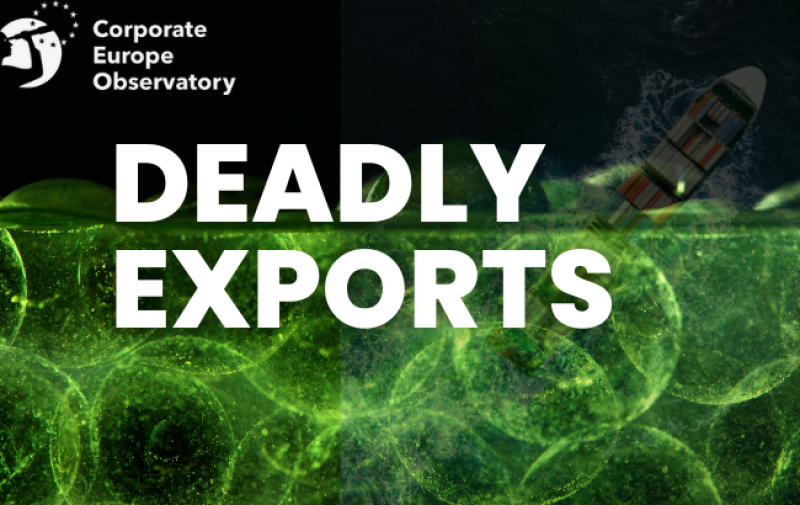Stay always informed
Interested in our articles? Get the latest information and analysis straight to your email. Sign up for our newsletter.

In 2020, the European Commission pledged to address one of the most unethical trading practices in the EU: the export of banned pesticides to third countries. These substances are so dangerous that their use within the EU is forbidden. However, despite this original commitment, no concrete proposal has been put forward, and the EU is still exporting large quantities of these hazardous substances to countries around the world, with a focus on South America and the Global South every year.
Deadly Exports, a new report by Corporate Europe Observatory explored industry arguments against an EU export ban.
The research highlights six key arguments commonly used by lobbyists and industry:
João Camargo, CEO researcher and campaigner, says:
“The toxic trade of banned chemical products is hard to compare in its iniquity.
EU companies like Bayer, BASF and others are sending out products which have already been forbidden here as they actively endanger people’s health and contaminate water, soils and destroy biodiversity. Yet they keep on taking advantage of the loopholes and free trade regimes to send these deadly products elsewhere, where they have the same or worse impacts on communities and the environment.”
Hans Van Scharen, CEO researcher and campaigner also refers that: “As long as these companies and their lobbyists have privileged access to governments and EU institutions, they will keep on pushing their profit over health and preserving biodiversity. Their arguments are laughable, yet the corporate-capture of EU policy making, maintains Europe’s complicity with this deadly trade. We need toxic-free politics to begin mending the harm done all around the world.”
ENDS
For media inquiries, please contact:
João Camargo, Corporate Europe Observatory Researcher and Campaigner
+351 963367363
Hans van Scharen, Corporate Europe Observatory Researcher and Campaigner
+32 484729776